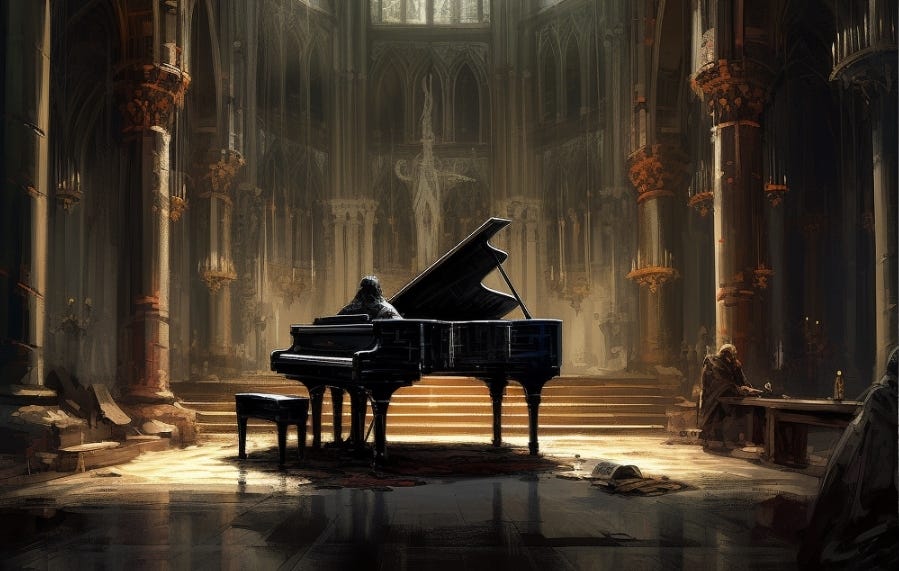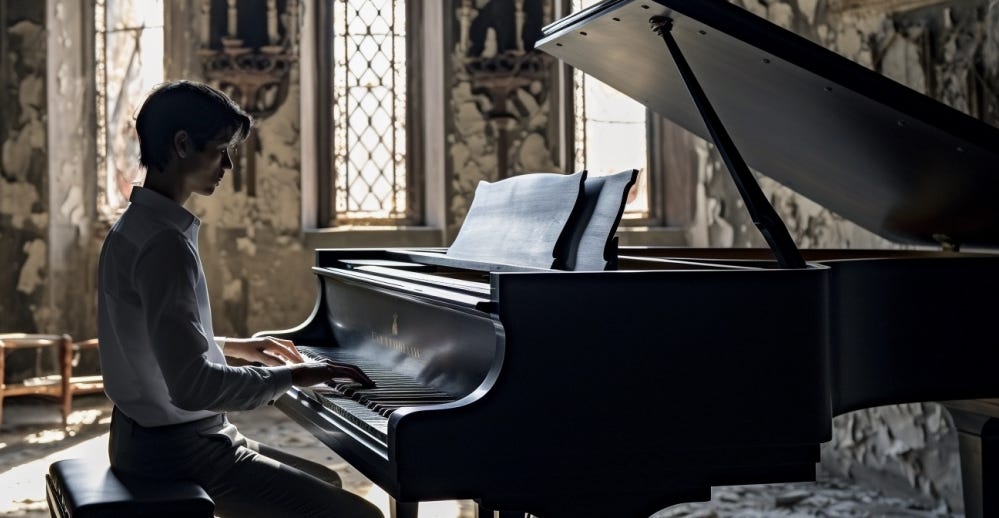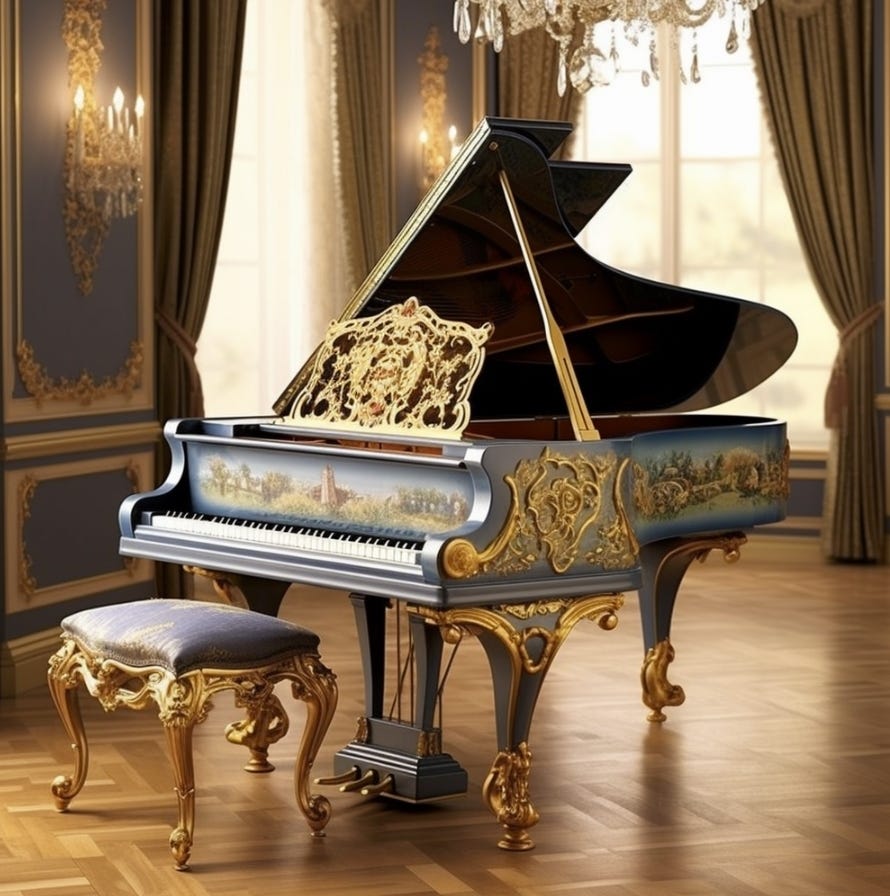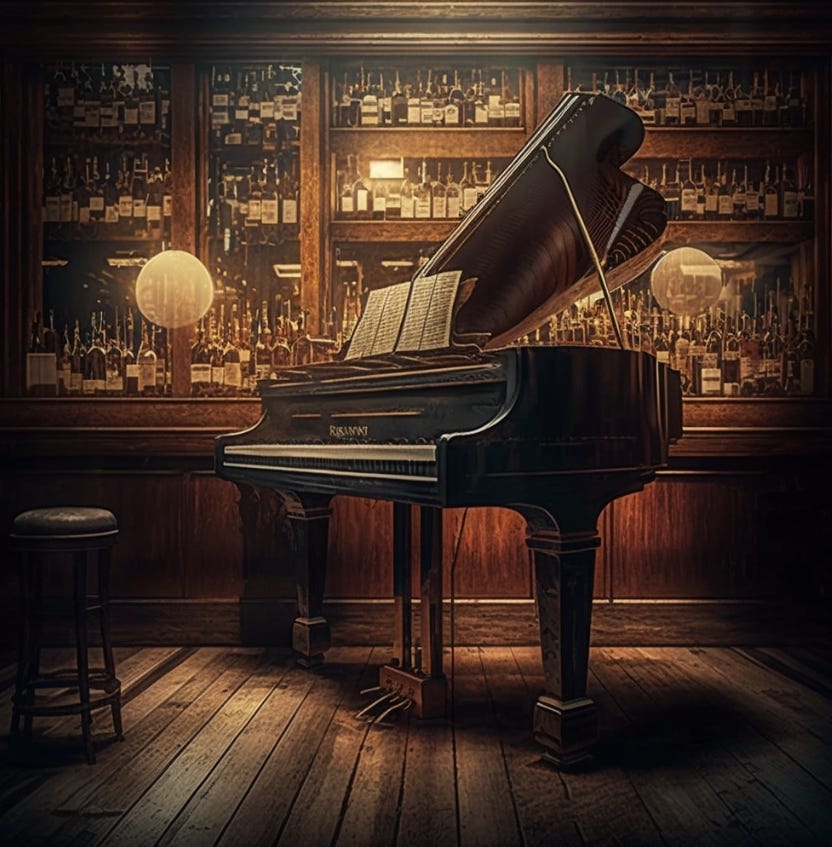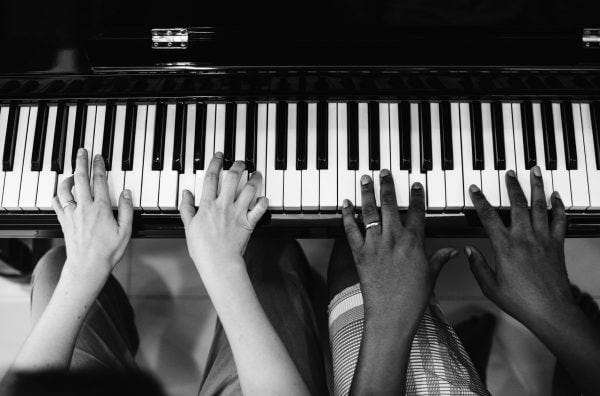7 Reasons Why Piano is the Best Instrument
I have always believed that the piano is the best instrument, and I'm not alone in this sentiment.
The piano has captivated hearts and minds for centuries, and its timeless appeal continues to resonate with musicians and music lovers around the world.
As a pianist myself, I have experienced firsthand the unique qualities and advantages that make the piano stand out among other musical instruments. In this article, I will share seven compelling reasons why I believe the piano is the best instrument.
From its versatility and expressive capabilities to its profound impact on music theory and the myriad of cognitive and emotional benefits it offers, the piano truly stands in a league of its own.
1. Develops Full Musical Foundation
More so than any other instrument, piano builds a complete musical skillset. Learning piano teaches note reading, rhythm, musical expression, harmony, and melody.
These core musical abilities provide an excellent foundation that can then be applied to any other instrument. Many musicians start with piano because it's simply the best springboard to comprehensively learning music.
When you learn piano, you start by learning the names of the notes on the treble and bass clefs. You then associate those note names with the appropriate keys on the piano. This fundamental connection between notes on the page and keys on the piano is very direct and clear. That clarity helps pianists rapidly grasp note reading skills.
Understanding rhythm is another critical musical foundation. The consistent nature of piano keys and pedaling allows beginning pianists to easily play different note durations and develop intricate rhythmic abilities.
Rhythm on the piano is straightforward compared to instruments that require significant physical motions to produce different notes.
Piano also lends itself well to learning musical expression through dynamics and articulation. Playing with varied volume and techniques like staccato touches can be executed easily on piano.
Applying musical phrasing becomes intuitive. Overall, no other instrument educates across all facets of music as effectively as piano.
2. Immediate Satisfaction
One of the most gratifying parts of learning piano is that you can produce beautiful music almost immediately. Unlike other instruments that take months of practice just to produce a decent sound, piano allows you to play full songs within the first few lessons. The instant gratification and sense of accomplishment provides strong motivation to keep progressing.
For example, with just a few weeks of practice a piano beginner can start playing simple melodies with the right hand. Shortly after, adding the left hand to provide harmony gives a full musical sound. This quick transition from disjointed notes to actual songs gives a powerful sense of achievement.
Beginners on instruments like violin or oboe will still be struggling with basic techniques like bowing or embouchure for months before producing clear notes consistently. But on piano, beginners don’t have to wait nearly as long to enjoy playing real music. This instills confidence and keeps piano students progressing happily through the early stages of learning.
3. Solo and Ensemble Abilities
Piano music can stand powerfully alone in solo compositions. But it also blends seamlessly into ensemble performances ranging from pop bands to symphony orchestras. This versatility makes piano engaging for both solo practice sessions and group musical collaborations. There are few other instruments that function well solo but also add so much to ensemble playing.
For solo playing, piano allows full musical expressions on a single instrument. Melody, harmony, rhythm, and expression can all be executed by a solo pianist. The range of sound and dynamics on a piano facilitates beautiful solo arrangements at beginner levels and through advanced concertos.
Additionally, the piano provides strong musical support in groups. The piano part written into band, choral, orchestral scores is crucial for keeping other musicians on pitch and rhythm. The unique sound of the piano stands out even among dozens of instruments. Whether practicing alone or rehearsing with an ensemble, piano skills translate directly between solo and group settings.
4. Reading Music is Straightforward
Learning to read sheet music on piano is more direct than other instruments like guitar or violin. With piano, there is a one-to-one correspondence between the notes on the page and the keys. This simplicity helps pianists easily learn songs and progress their sight-reading abilities faster than other instruments often allow.
On instruments like violin, one note can be played in several positions. This requires reading notation along with complex finger placement. With piano, you simply find the note name on the page and match it to the same key on the piano. This clear relationship helps pianists excel at note identification.
Piano sheet music also adheres to a predictable pattern of repeating octaves. Once a few notes are memorized, this repetition makes quickly identifying notes easier. Overall, the straightforward layout of the piano results in a simpler learning curve for reading notation compared to other instruments.
5. Helps to Develop Coordination
Playing piano is a great way to improve hand-eye coordination, dexterity, and finger independence. The act of reading notes while precisely moving different fingers on each hand trains important brain-hand connections. Along with mental focus, piano builds physical coordination that benefits development and overall wellbeing.
The visual tracking involved in reading notation while watching your hands move trains eye-hand coordination. Your brain subconsciously associates the note you see with the finger that needs to move. Over time, this connection becomes automatic, allowing pianists to watch their hand position less and focus on reading ahead.
Independence between the hands is also crucial. The unique challenge of playing different parts with each hand builds brain pathways for operating limbs independently. Piano also develops finer dexterity in the fingers not used in most other daily activities. Altogether, the synchrony piano requires makes it a standout for improving coordination.
6. Choose from Many Genres
From classical to jazz to modern pop, piano music exists across virtually every genre. This diversity keeps piano learners engaged since they can always find songs that appeal to their unique musical tastes. Exploring new genres also develops well-rounded abilities. Piano provides options no matter your style.
Classical piano methods expose students to foundational techniques and repertoire from Baroque, Romantic, and Contemporary eras. Studying the genres helps build technical skills. Then, learning jazz teaches how to improvise and apply chord theory. Finally, modern music allows self-expression through playing popular songs.
The versatility also accommodates different learning styles. If you learn best by reading notes, classical methods work well. If you want to play by ear, pick up pop songs quickly. That diversity keeps piano students motivated across changing interests and learning approaches.
7. Lifelong Skill
Once you've learned piano, you have a skill for life. Understanding music through piano is something that stays with you and can be picked back up after years away. Maintaining piano abilities sharpens the mind, provides a creative outlet, and simply brings lifelong enjoyment. That lasting value makes time spent learning piano extremely worthwhile.
Think of piano as learning to ride a bike. Those core skills stick with you. After being away from piano, you may need a brief refresher on music theory or technique. But the ability to sit down and start playing comes right back.
Playing piano enriches life at all ages too. For kids it builds skills, for teens it provides emotional outlets, for adults it relieves stress. There are few other skills that benefit every stage of life. The joy and relaxation the piano brings lasts a lifetime.
No other instrument offers the combination of instant enjoyment, foundational skills, solo and ensemble utility, and genre diversity as the piano. Learning this satisfying instrument enriches life both now and for years to come.
Is piano harder to learn than guitar?
Piano and guitar both have unique challenges, but most teachers agree piano fundamentals come quicker. On guitar, both hands must constantly shift up and down the fretboard to change chords and notes. Piano offers fixed positioned keys so reading notes is simpler.
Fingerpicking style guitar does require intricate right hand skills. But accessing different notes on piano tends to be more straightforward for beginners compared to guitar chord transitions and fretting hand position.
Overall, most students grasp basics faster on piano, especially related to note reading and rhythm.
Can you self-teach piano?
It is absolutely possible to learn piano independently through books, online lessons/masterclasses, instructional apps, and free content on YouTube. With motivation and commitment, self-teaching provides a low-cost way to start playing piano on your own terms.
However, seeking out an instructor, at least periodically, prevents developing bad habits that then must be corrected. One-on-one lessons provide accountability, structure, personalized feedback, and guidance that is extremely valuable, especially for beginners.
For those learning independently, be your own toughest critic analyzing hand position, technique, and sight reading accuracy. Monitor progress closely and seek out an instructor for periodic check-ins.
Guided lessons provide the most effective structure when starting piano, but supplementing with additional materials for practice can optimize success.
Is piano good for kids?
Piano lessons provide tremendous developmental benefits for kids that make it one of the best activities for children to pursue. Learning piano improves concentration as they have to closely watch notation and listen to sound.
The focus required also improves memory over time. Piano builds fine motor skills and coordination through unique hand motions. Playing different parts with left and right hand also enhances brain function.
Listening to music in lessons boosts processing speed. Songs and instruction exercises will also develop stronger mathematical skills over time. But one of the greatest benefits is building confidence as songs get progressively more complex.
As long as lessons incorporate encouragement, praise, and fun, piano education provides advantages that will help children excel in all areas.
What type of keyboard should I get?
If possible, look for a full 88 key weighted digital piano for a beginner instrument. The weighted keys closely mimic the feel of an acoustic piano and help build proper finger technique.
Starting on a keyboard with fewer keys or non-weighted actions can make the transition to weighted keys more challenging later on. If space or budget is limited, a 61, 66, or 73 key semi-weighted keyboard can provide a decent starter instrument. Having at least four full octaves allows playing more complex songs.
Avoid very cheap keyboards with unweighted keys. While inexpensive, they don’t have the proper touch to facilitate developing skills that transfer to acoustic pianos. Look for the best weighted or semi-weighted instrument you can afford.
Craigslist and Facebook Marketplace are great options for finding quality used digital pianos at lower costs.
How long until I can play complex classical pieces?
Developing the skill level to play advanced classical repertoire is an endeavor of years for most pianists.
Pieces by famous composers like Chopin, Liszt, and Rachmaninoff require tremendous technique and musicality. But remember there are always new pieces to progress to even after years of diligent practice.
Setting manageable goals along the way prevents frustration and keeps advancement enjoyable. Work toward playing hands together, improving rhythm and expression, sight reading simpler pieces fluidly, performing for others, and expanding your repertoire.
With regular lessons, focused practice, and immersion in the classics, your skills will grow exponentially. Progress happens one practice session at a time. Keep learning new pieces just beyond your current ability. Before you know it, you’ll be impressing yourself with the complex works you can confidently perform.
Enjoy the journey, artistry comes in time.





